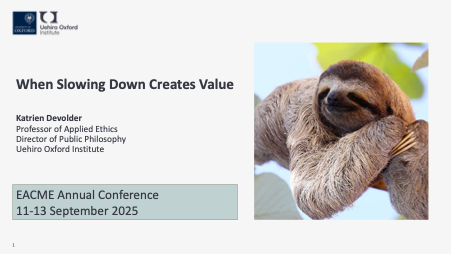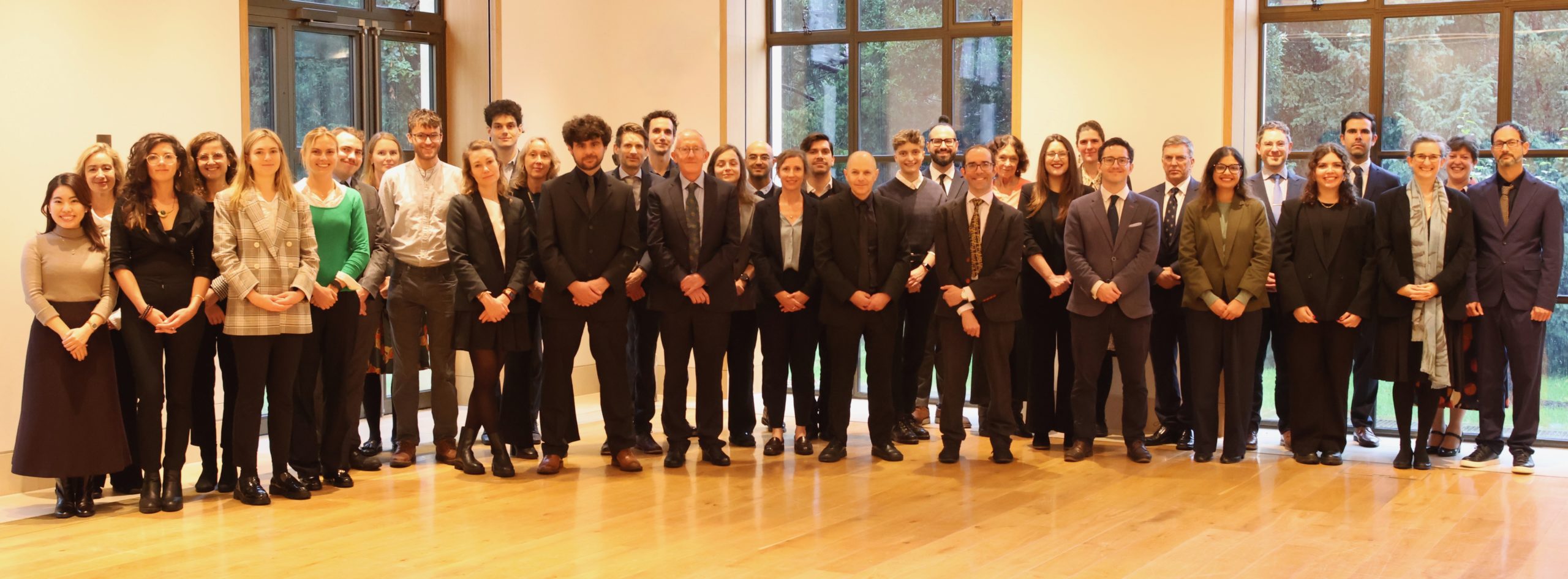-

Celebrating Women in Ethics #WiE
The academic study of ethics is full of ideas that shape how we think about the world, and many of them come from women whose work deserves to be better known. Women writers, thinkers and ethicists have contributed for millennia alongside their male counterparts, yet their work has been often forgotten or side-lined. In our
-

National Uehiro Oxford Essay Prize in Practical Ethics
The National Uehiro Oxford Essay Prize in Practical Ethics is an annual competition held in the autumn/spring each year. It is open to all undergraduate and postgraduate students enrolled in UK universities, and the 2025/6 competition is now open for entries. Students are invited to enter by submitting an essay of up to 2000 words
-

Equity in Global Health: reflections from the Humanities
Authors: Alberto Giubilini (philosophy), Caesar Atuire (philosophy), Sloan Mahone (history), Ann Kelly (anthropology), Tolulope Osayomi (medical geography) Report of the Medical Humanities workshop held on 7th November 2025 at the University of Oxford This interdisciplinary workshop wanted to explore the contribution that the humanities can make to global health, and indeed emphasize their necessary role
-

‘Happy Birthday to E-Uni-Well’
Blog post by Prof Roger Crisp (Professor of Moral Philosophy/ Director of the Uehiro Oxford Institute) At the invitation of Professor Beatrix Busse, I was recently lucky enough to be asked to participate in the fifth anniversary celebrations of the European University of Well-being (E-Uni-Well), held in Cologne. EUniWell – the European University for Well-Being –
-

When Slowing Down Creates Value
EACME Conference 2025 Healthcare innovation and research often prioritise acceleration and efficiency. This keynote (12th September 2025) challenged this paradigm by drawing on preliminary findings from Project Lazy, which explores judgements about laziness through research and community engagement. The talk had four parts: an introduction to Project Lazy, findings from the philosophical part, findings from
-

UOI’s First Anniversary!
Time has flown since the Uehiro Oxford Institute came into existence on 1 October 2024! We continue to seek to improve the world through engagement with others – what we call ‘Thought into Action’ – and have made great progress in fulfilling our mission to work philosophically across many disciplines, including medicine, history, law, computer
-

Practically prompted #4: Carnival, Cameras, and Consent: The Ethics of Live Facial Recognition at Notting Hill
This is the fourth in a trial blog series called “Practically Prompted” – an experiment in using large language models to independently select a recent, ethically rich news story and then write a Practical Ethics blog-style post about it. The text below is the model’s work, followed by some light human commentary. See this post for the
-

Practically Prompted #3: VPNs Top the App Charts After UK Age-Checks Kick In: What Does “Protecting Children” Justify?
This is the third in a trial blog series called “Practically Prompted” – an experiment in using large language models to independently select a recent, ethically rich news story and then write a Practical Ethics blog-style post about it. The text below is the model’s work, followed by some light human commentary. See this post for the
-

Practically Prompted #2 – Regulating the Regulators: Europe’s New AI ‘Code of Practice’ and the Ethics of Voluntary Compliance
This is the second in a trial blog series called “Practically Prompted” – an experiment in using large language models to independently select a recent, ethically rich news story and then write a Practical Ethics blog-style post about it. The text below is the model’s work, followed by some light human commentary. See this post for the
-

Congratulations to ‘IDEA’ in Leeds!
I am just back from a celebration of the 20th anniversary of IDEA: the Ethics Centre, at the University of Leeds. (IDEA stands for ‘Inter-disciplinary Ethics Applied’.) IDEA was founded by Chris Megone, an old friend from my graduate days, and is now directed by Simon Kirchin. The centre has achieved a huge amount in
